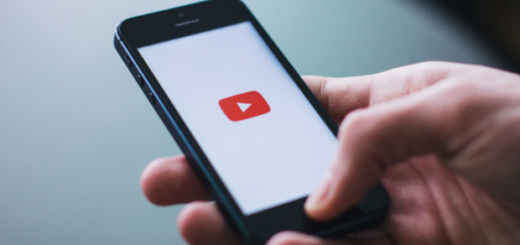A video love-in for Putin and Bolsonaro; whispering YouTubers debunk Covid-19 test fears
[ad_1]
Welcome to the Infodemic. We are tracking how disinformation is shaping the global pandemic response. Here are the narratives that have grabbed our attention this week and deserve yours.
Subscribe to the Infodemic, tracking global Covid-19 disinformation
When the pandemic hit, the world was stuck indoors — and junk food companies spotted new opportunities for profit, often pursued under the guise of charitable or socially responsible endeavors. A new report by the Global Health Advocacy Incubator details some of the industry’s methods. McDonald’s and Frosted Flakes funded online education platforms, ostensibly aimed at helping kids learn during quarantine but filled with advertising for their products. Burger King promoted its delivery service in Brazil in a PSA asking people to stay home and socially distance. And, from India to South Africa, corporations like Coca-Cola and Nestle donated sugary products to low-income communities ravaged by lockdowns and in need of nutritious food.
Have you heard of the new bromance between Jair Bolsonaro and Vladimir Putin? Social media in Brazil was peppered with memes after the Russian leader praised Bolsonaro’s masculinity during this week’s virtual BRICS summit. The group of emerging economies — made up of Brazil, Russia, India, China and South Africa — met on a video chat, at the end of which Putin addressed Bolsonaro directly. “You exhibited the best of masculine qualities and willpower… You are an example for us all,” he said, praising the Brazilian president’s handling of the Covid-19 crisis. What makes this even more bizarre is the fact that Brazil has the second-highest coronavirus death toll after the United States, while public health experts have roundly criticized Bolsonaro’s approach. After all that criticism, it’s no wonder that Bolsonaro smiled at Putin’s praise and was quick to post the footage to his 3.9 million YouTube followers.
Does Putin’s applause for Bolsonaro’s pandemic response constitute misinformation? There is no easy answer. Tech platforms are still struggling to navigate the fine line between free speech and fake news. But the pandemic and the U.S. election have forced platforms to take much more aggressive steps, according to NPR. Ripple effects are being felt around the world. While Bolsonaro shared Putin’s glowing approval, the far-right Brazilian philosopher and Bolsonaro’s former guru Olavo de Carvalho tweeted that he can no longer post on his YouTube channel. Carvalho, whose Covid-19 denialist posts had been taken down, says that he is being censored. We are hearing similar complaints from Russia, where authorities filed a complaint to Google after one of the country’s leading television personalities, the prominent Kremlin propagandist Vladimir Soloviev, stopped trending on the video-sharing site.
The coronavirus has raised the stakes in the crisis of digital disinformation. All around the world academics, legislators, regulators and journalists have been racking their brains, trying to come up with solutions to the infodemic. But sometimes fixes come from places that you least expect. Isobel Cockerell has more below, so keep reading.
Subscribe to the Infodemic, tracking global Covid-19 disinformation
AN UNUSUAL DISINFORMATION CURE by Isobel Cockerell
Have you heard about ASMR influencers? For several years, members of this community have made videos that aim to trigger something known as autonomous sensory meridian response. Often described as a pleasant tingling sensation, it can apparently be brought about by all manner of things, from listening to people whisper to watching them folding towels or cutting soap.
Now, these soft-voiced stars are behind a new YouTube trend: videos that simulate the experience of going to get a coronavirus swab test, made to reduce people’s anxiety about undergoing the procedure.
“I hear that you’re not feeling very well and that’s your reason for coming in today?” a masked woman, whose username is ASMR Darling, murmurs soothingly. She proceeds to gently role-play the process of getting a PCR test, pushing a long swab into the camera, as if probing the viewer’s throat. The video is the most popular of its kind, with more than 1.2 million views to date. A rash of similar clips have followed.
According to influencers, the coronavirus crisis has prompted a surge of interest in ASMR content.
“I noticed that, when the pandemic first started, my subscriber count doubled,” said 24-year-old Isabella Pontbriand from Florida. Her YouTube channel, Isabella ASMR, now has 1.9 million views. Pontbriand, who has made a number of medical-themed videos, added that she posted a testing clip to debunk misinformation about the virus. She even drafts in her medical student boyfriend to help.
“When I first started making medical role-plays, I would have him teach me beforehand how to do them,” she said. “I do think ASMR videos are a place where you can educate people.
“I think people like the ASMR swab videos because personal attention is a really big trigger for people.”
And of course, getting up close and personal with other people is exactly what we aren’t allowed to do right now. That, too, must be part of the appeal.
Subscribe to the Infodemic, tracking global Covid-19 disinformation
Here’s a quick round-up of stories from our Russia team:
- The first one is about Aleksey, a student from a small Russian village who posted a video of himself balancing on a branch of a birch tree nearly 30 feet from the ground, the only place where he can get a cellular signal to attend virtual classes. The video went viral. Local authorities got in touch with Aleksey and the Ministry of Digital development promised internet for the village. The Russian office of TikTok also volunteered to get involved.
- Authorities in Moscow have detained Father Frost (Russian Santa Claus) who was protesting the cancellation of Christmas and New Year festivities. His gnomes (not to be confused with Santa’s elves) were also briefly detained.
- Who says Russia is a technically backward country? Here is a video of a Russian cyber farm currently seeking new recruits worldwide. Possibly the most creative piece of fake news I’ve seen in a while.
Hungry for more?
Thanks for reading and, to those of you in the U.S., have a great Thanksgiving. The Infodemic will be taking next Friday off, but we’ll be back in your inbox after that.
Natalia
[ad_2]
Source by [author_name]














